As an economics student, you don’t need to spend an awful amount of money on your laptop. Primarily you’ll be using your computer to read documents, browse the internet, or draw some graphics, and it doesn’t require any particular hardware configuration. However, if you’re into gaming or looking for a touchscreen laptop with a compact design, you might have to loosen your fist.
Top Rated Budget Laptops
Last update on 2025-03-10 / Affiliate links / Images from Amazon Product Advertising API
Some of our readers asked about it; therefore, this post will discuss the best laptops for economics students in 2024 and what we should consider before purchasing one. So, let’s get started!
If you’re in a hurry, check out our top choices:
- Apple MacBook Air (for
 )
) - DELL XPS 13 9310 (for
 )
)
Best Laptops for Economics Majors in 2024 – Buyer’s Guide
Processor
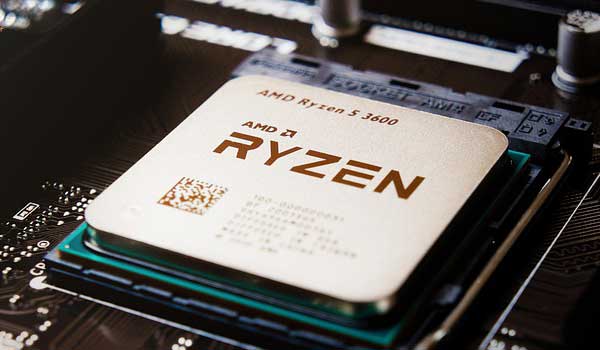
Browsing the web or working with documents only requires a little robust hardware configuration; therefore, you can go with even an Intel Core i3 processor or budget range AMD Ryzen processor. However, I recommend a Core i5 processor; it would be future-proof.
What about the Core i7 laptop?
Unless you’re into gaming or any rigorous designing or editing work, you don’t need an Intel Core i7 processor. Keep in mind; the Intel Core i7 processor consumes more battery, so the Intel Core i5 is a much more viable choice for students.
Memory
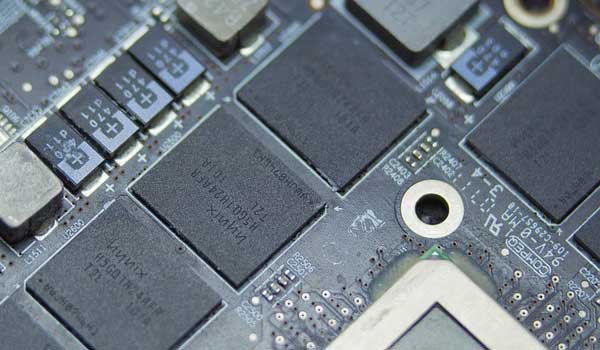
Working with multiple Chrome tabs or opening several documents is quite common for economics students, and laptop memory plays a vital role here. However, it’s not a big deal nowadays; memory isn’t costly. It would be best to choose at least 8GB memory for your economics laptop; it can handle multitasking easily. If you use your notebook for gaming or some other rigorous tasks in the future, make sure its memory is upgradable because most slim and compact machines lack this feature.
Display
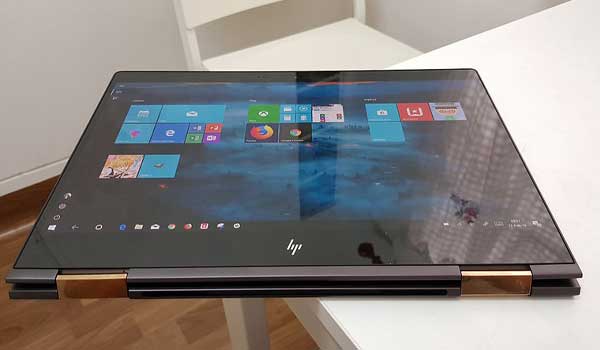
The display quality must also be suitable for a convenient reading experience. It will help if you prefer a laptop with an IPS or OLED panel with a higher resolution. Nowadays, full HD resolution is relatively standard and sufficient for cozy reading; you shouldn’t go below that range.
The IPS (in-plane switching) display provides a broad view angle and better color accuracy than the older TN (twisted nematic) panel. The IPS panel is easily available even on budget laptops as well. Some latest laptops offer OLED screen, which provides even more vivid and crisp image quality than IPS, but it’s slightly expensive.
Consider the brightness level and anti-glare coating if you use your laptop outside or in bright lighting.
What about a touchscreen laptop?
Touch screen laptops are quite popular among students as they are helpful for taking notes or drawing. But keep in mind, along with the touchscreen; the notebook must offer a convertible or collapsible design; otherwise, you won’t be able to make the most of it. It is worth mentioning here laptops with touch screens and ultra-high resolution consume more battery than standard notebooks.
Storage
It mainly depends on the user; if you have an extensive collection of photos, music, or videos, you must consider something bigger storage such as 1TB or 2TB. However, 256GB of storage for economics students is sufficient; it can hold thousands of documents. Going with a Solid-State Drive would be an excellent idea. An PCIe SSD storage ensures even faster performance than the conventional HDDs or standard SATA SSD; you can feel this difference in the booting time, searching, or accessing files.
SSDs’ prices have declined sharply in the last two years; therefore, going with 512GB or higher storage is not a big deal. However, if you need a more cost-efficient option, you can choose a hybrid laptop that offers both PCIe and SATA storage. SATA SSDs are significantly cheaper than PCIe.
Dedicated GPU
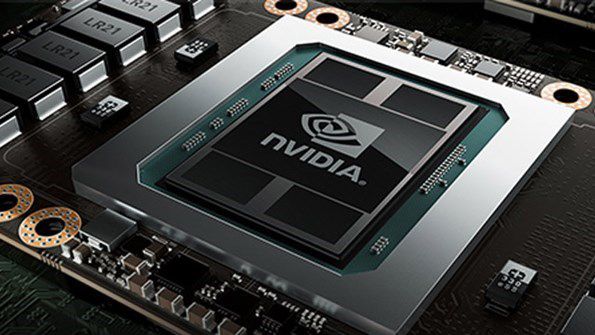
A laptop with a dedicated GPU isn’t recommended for economics students. A discrete GPU can put an extra toll on a laptop’s battery life. An integrated graphics memory is enough for all general tasks. However, having a discrete GPU on your computer will be great if you often play games on your notebook. Even an entry-level graphics card can massively reduce the workload of your processor during heavy graphical processing.
Battery life
It is something that every student wants, but it depends on several factors. You should aim for at least 8+ hours of battery life.
It would help to avoid high-watt processors such as i5-12450H, Ryzen 5 5600H, i7-11800H, Ryzen 7 5800H, i9-12900HK, etc. These processors are designed for high-end gaming, editing, or modeling work. Usually, their name has “H,” “HK, and “HX” suffixes if we talk about AMD and Intel chips.
Display quality also defines battery life; laptops with higher resolution, such as 2K and 4K, offer less battery life than the standard screen. As mentioned above, avoid a dedicated GPU if you want to add a few extra hours to your laptop battery.
Lightweight and compact laptops are prone to have low backup life as they don’t have much room for a large battery. Moreover, most compact and slim laptops can’t be upgraded.
Of course, there are many exceptions, and they offer longer battery life despite having a high-resolution touch screen, robust hardware configuration, and compact design, but they are indeed costly.
General FAQs
Q: What are the minimum requirements for a laptop for economics students?
A: A laptop with the following configuration would be sufficient for an economics student.
- Intel Core i5 or i7 processor
- 8GB of RAM
- 256GB of PCIe SSD storage
- 13-inch or larger display with at least 1920 x 1080 pixels of resolution
- 8 hours+ battery life
Q: Is a dedicated graphics card necessary for economics students?
A: A dedicated graphics card is unnecessary for most economics coursework. Integrated graphics should be sufficient.
Q: Should I get a Windows or MacOS laptop for economics coursework?
A: Either Windows or MacOS should be OK. It ultimately depends on your preference and the software you will use for your coursework.
Q: How much should I spend on a laptop for economics coursework?
A: You can find many great laptops within the $500 – $1500 range. It depends on your budget as well.
Q: Are there any specific software requirements for economics coursework?
A: Some economics courses may require specialized software like R or Stata. Remember to check with your instructor or department to see if any specific software is needed.
Q: Is a touchscreen display necessary for economics students?
A: No, a touchscreen display is not necessary for economics coursework. It can be a valuable feature for some students but is optional.
Q: How important is the battery life for economics students?
A: Battery life is generally essential for most students because they need to use their laptops for extended periods without access to a power outlet, such as during lectures or while studying on campus.
Q: Should I prioritize portability or performance when choosing a laptop for economics coursework?
A: Consider prioritizing portability if you carry your laptop around campus or travel frequently. Conversely, prioritize performance if you work with resource-intensive software.
Q: Are there any additional features or accessories that may be useful for economics students?
A: A comfortable keyboard and touchpad, a webcam, and a good-quality microphone can be helpful for attending online lectures or participating in virtual meetings. A docking station or external monitor is also beneficial for students working on multiple screens.
QUICK OVERVIEW:
Best economics student’s laptops at a glance
ACER ASPIRE 5 MOST AFFORDABLE |
| View at Amazon |
LENOVO FLEX 5 BUDGET 2-IN-1 |
| View at Amazon |
ACER SPIN 714 BEST CHROMEBOOK |
| View at Amazon |
HP VICTUS BUDGET GAMING |
| View at Amazon |
LG GRAM 15 BEST IN BUDGET |
| View at Amazon |
LENOVO THINKPAD E15 BEST BUSINESS LAPTOP |
| View at Amazon |
ACER PREDATOR HELIOS 300 MOST POWERFUL |
| View at Amazon |
APPLE MACBOOK AIR BEST MACBOOK |
| View at Amazon |
DELL XPS 13 9310 BEST WINDOWS |
| View at Amazon |
MICROSOFT SURFACE PRO 9 MOST PORTABLE |
| View at Amazon |
Last update on 2025-03-11 / Affiliate links / Images from Amazon Product Advertising API
Best Laptops for Economics Students in 2024 – Reviews
1. Acer Aspire 5 (Most Affordable Laptop for Economics Students)

Weight: 3.63 lbs | Processor: i3-1115G4 @4.1GHz | GPU: Intel UHD | Memory: 8GB | Storage: 128GB SSD | Screen: 15.6-inch , 1920 x1080 | Battery Life: 7-hours | OS: Windows 11 Home S Mode
Some students might be unable to invest much money in a laptop because of a tight budget; in this case, the Acer Aspire 5 might be a suitable option. This machine offers decent performance and student-friendly features at an affordable price.
The Intel Core i3-1115G4 processor is the heart of Acer Aspire 5, and it’s clubbed with 8GB memory and 128 GB NVMe SSD storage. It can deliver ideal performance for economics students, whether reading, browsing the internet, or editing some graphics. However, it’s not suitable for heavy multitasking and rigorous work, which is evident for its lower price.
The best thing about this notebook is it’s easily upgradable in the future. You can do it yourself if you want to upgrade to a faster SSD or enhance the memory. It’s a lightweight and compact notebook, making it perfect for students or anyone who works on the go.
The Aspire E 15 has a full HD 15.6-inch display, delivering decent-quality images, perfect for watching movies or reading documents. However, there are some compromises that you have to make. It only offers around 7 hours of battery life which might be lesser if you run some heavy programs. Moreover, it doesn’t offer a backlit keyboard.
Acer Aspire 5 is one of the cheapest laptops available on the market, which might suit your economic study needs. However, if you can stretch your budget more, you can get far better performance and features.
PROS
- Inexpensive
- Full HD screen
- Decent performance
- Easy to upgrade
- Enough connectivity options
CONS
- Low battery life
- Limited performance
- No backlit keyboard
2. Lenovo Flex 5 (Budget 2-in-1 Notebook for Economics Students)

Weight: 3.41 lbs | Processor: Ryzen 5 5500U @4.0GHz | GPU: AMD Radeon | Memory: 16 GB | Storage: 512GB PCle SSD | Screen: 14-inch touch , 1920 x 1080 | Battery Life: 10-hours | OS: Windows 11 Home
A convertible laptop with a touch display and slim body looks cool; however, they are expensive. The Lenovo Flex 14 broke this myth years ago; it is a budget-friendly 2-in-1 notebook packed with all the essential features. The Flex 5 is carrying this legacy with its latest features and design.
This pretty notebook offers a convertible design with robust hardware configurations. As an economics student, you won’t face any lack in performance, whether you’re reading, editing, or researching.
The Lenovo Flex 5 is designed with a robust AMD Ryzen 5 5500U processor along with 16GB memory and 256GB NVMe SSD, which can cater to your multitasking and heavy work needs.
The convertible with a touch display is a fantastic feature; you can do whatever you want more efficiently. With the 14-inch full HD touchscreen and Lenovo stylus, you can make drawings or take notes on the go. The display quality is fantastic; it’s viable for gaming, watching movies, editing photos, or reading.
Yes, this machine can also run light games to kill your boredom sometimes.
The Flex 5 features a USB Type-C, HDMI, and two USB 3.1 ports, allowing you to connect an external monitor or storage devices. On top of that, it offers a backlit keyboard and fingerprint sensor to ensure better usability.
This laptop looks captivating because it incorporates a gorgeous display with a thin bezel. Its compact and lightweight design lets it fit snugly between your books inside your bag.
Despite having a slim and compact design, the Lenovo Flex 5 has surprised with its 10 hours of battery life on casual usage. It’s enough for a student’s whole day, whether attending a lecture or researching in the library.
Altogether, Lenovo Flex 5 is a worth money laptop with great features for its price, and it could be a solid deal for students.
PROS
- 10-point full HD touch display
- Impressive performance
- Fingerprint sensor
- Backlit keyboard
- Privacy webcam
- Stylus is included
- Excellent backup
- Compact and lightweight design
CONS
- A bit lower brightness level
- Not recommended for highly color-sensitive tasks
3. Acer Chromebook Spin 714 (Best Chromebook for Economics Students)

Weight: 3.09 lbs | Processor: i5-1235U @4.4Ghz | GPU: Intel Iris Xe | Memory: 8GB | Storage: 256GB – 1TB PCIe SSD | Screen: 14-inch touch , 1920 x 1080 | Battery Life: 16-hours | OS: Chrome OS
I don’t recommend Chromebooks for students as they have limited functionality. At least don’t choose any cheap Chromebook with MediaTek, Celeron, or Atom processors, as they aren’t much beneficial for students.
Some users have asked which Chromebook we should choose as economic students, so I have listed it. Acer Spin 714 has an Intel Core i5-1235U processor, 8GB memory, and 256GB SSD. The hardware is decent for its price; it allows you to do all the everyday work easier.
The performance is quite impressive. But remember, it’s a Chromebook, and it’s specially designed to work with online applications. Therefore, you can’t install the Windows or Mac desktop versions of software programs such as Microsoft Office, Adobe Photoshop, or CorelDraw on a Chromebook. However, you can use Android apps or web versions of the software.
It’s a touch-enabled Chromebook with a 14-inch 1080p screen and a convertible design. It’s perfect for students due to its versatile form factor and rich image quality. You can enjoy movies or some light games in your spare time.
Spin 714 promises up to 16 hours of battery life which is mind-blowing. The build quality is also satisfying and looks premium as well. It has two Thunderbolt 4 ports, allowing for connecting different devices and faster data transfer. Moreover, with its backlit keyboard, you can type late at night without disturbing your loved one.
Overall, if you’re looking for a 2-in-1 laptop for a budget price, the Acer Spin 714 Chromebook might be a viable option. However, I still encourage you to get a Windows or Mac machine over a Chromebook because it has limited functionality.
PROS
- Gorgeous full HD touchscreen
- Robust hardware
- 360-degree rotatable durable hinge
- Premium and compact design
- Impressive battery life
- Backlit keyboard
- Thunderbolt 4
CONS
- Limited functionality due to ChromeOS
4. HP Victus (Budget Gaming Laptop for Economic Students)

Weight: 5.06 lbs | Processor: i5-12450H @4.40GHz | GPU: GeForce GTX 1650 4GB | Memory: 16GB | Storage: 1TB PCIe SSD | Screen: 15.6-inch 144Hz , 1920 x 1080 | Battery Life: 5.75-hours | OS: Windows 11 Home
If you play some games or run some graphics-heavy tasks, consider a laptop with a dedicated GPU. The HP Victus could be a perfect choice for students because of its affordability and features.
This gaming notebook is crafted with an Octa-Core Intel Core i5-12450H processor, 16 GB memory, 1TB SSD, and 4GB Nvidia GTX 1650 discrete GPU. Whether you play games, run multiple applications, or open dozens of Chrome tabs, it can deliver snappy and stable performance.
If you have noticed, it has an Intel H product line processor, which churns out higher clock speed and power but consumes more battery. The dedicated GPU is another reason for its poor backup, but that’s quite normal for a gaming laptop. However, if performance is your priority, it is one of the best choices in the budget range.
The Victus is formed with a full HD IPS display with anti-glare coating, 144Hz refresh rate, and micro-edge, which can deliver outstanding picture quality and is also viable to use outdoors.
The build quality of this gaming machine is solid; it’s equipped with a backlit keyboard that supports the Anti-Ghost key, ideal for accurate typing and gaming control. There are lots of connectivity options, no complaints. The sound quality is also good, backed by B&O and HP Audio Boost. However, the camera quality could have been better.
Inferior battery life and the slightly weighty design are two annoying things I have found so far about this machine. But it could be a steal deal if you’re looking for a powerful gaming machine without spending a premium price.
PROS
- Robust performance
- Full HD IPS screen
- Comprehensive connectivity options
- Backlit keyboard with Anti-Ghost Key
- Reliable build quality
- Reasonable price for the features
- HP Fast charge
CONS
- A bit heavy
- Inferior battery life
5. LG Gram 15 (Best Budget Laptop for Economics Students in 2024)

Weight: 2.47 lbs | Processor: i5-1135G7 @4.2GHz | GPU: Intel Iris Xe | Memory: 16GB | Storage: 512GB PCIe SSD | Screen: 15.6-inch , 1920 x 1080 | Battery Life: 17-hours | OS: Windows 11
LG Gram series epitomizes portability, performance, and longer battery life. That’s why it could be a fantastic choice for students.
The LG Gram 15 is the lightest laptop on this list despite offering a full-size 15.6-inch display. On top of that, its battery backup is also beyond expectations. It can last up to 17 hours of casual usage, which is unbelievable.
It’s not the only thing about LG Gram that impressed me. This buddy is powered by the Intel Core i5-1135G7 processor, 16GB memory, and 512GB SSD, which is enough for an economics student. You can study, play, or use it for entertainment.
The full HD 15.6-inch IPS display is enough for doing daily chores. A slim bezel surrounds the screen; therefore, it looks almost like a standard 14-inch notebook, which makes it more travel-friendly.
In the connectivity department, it has Thunderbolt 3, HDMI, and 3x USB 3.0 ports. The fingerprint sensor and backlit keyboard support are also available.
There is no dedicated GPU in the LG Gram 15, so if you’re an avid gamer or work with heavy graphics, you should look elsewhere. However, this notebook fulfills all the requirements if we talk about the students.
PROS
- Slim and compact design
- Stunning full HD screen
- Satisfying performance
- Extensive battery life
- Perfect for carrying
- Thunderbolt 3
- Fingerprint sensor
CONS
- No dedicated GPU
- A bit more costly than rivals
6. Lenovo ThinkPad E15 (Best Business Laptop for Economics Students)

Weight: 3.75 lbs | Processor: Ryzen 7 4700U @4.1GHz | GPU: AMD Radeon | Memory: up to 40GB | Storage: up to 2TB PCIe SSD | Screen: 15.6-inch , 1920 x 1080 | Battery Life: 7-hours | OS: Windows 11 Pro
The Lenovo Thinkpad series has always been considered trustworthy by professionals, whether we talk about durability, security, or performance.
This budget ThinkPad E15 Gen 2 model features an Intel Core Ryzen 7 4700U processor, 16GB memory, and 512GB SSD storage. It can handle almost anything you throw on it. Undoubtedly, due to the lack of a dedicated GPU, it’s not ideal for gaming enthusiasts. However, its integrated AMD Radeon graphics are enough for our usual chores.
This business laptop is designed with a 15.6-inch full HD IPS panel with anti-glare technology, which provides an ideal reading and viewing experience. The display brightness level is slightly lower, and you might face difficulty reading in direct sunlight.
As usual, this ThinkPad’s build quality is promising. It comes with a highly responsive touchpad and an iconic nipple mouse. The keyboard quality of the Thinkpad E15 is outstanding; if you type a lot, you’ll appreciate its responsiveness. The backlit keyboard and fingerprint sensor might not be available on this budget model because these are optional, which I didn’t like.
There is no compromise in the security; TPM 2.0 security chip and webcam privacy shutter are some examples. Also, it won’t let you down in terms of connectivity options.
The weight and battery life of this business laptop is moderate. It could be ideal if you’re looking for a reliable and robust machine for your study needs.
PROS
- Ideal full HD display
- Impressive performance
- dTPM 2.0 chip and privacy webcam
- Highly durable and reliable build
- Great keyboard
- Durable and reliable
CONS
- No backlit
- No fingerprint sensor
- Moderate battery life
7. Acer Predator Helios 300 (Powerful Gaming Notebook in Mid-Range)

Weight: 5..51 lbs | Processor: i7-11800H @4.6GHz | GPU: RTX 3060 6GB | Memory: 16GB | Storage: 512GB PCIe SSD + Extra slot | Screen: 15.6-inch 144Hz , 1920 x 1080 | Battery Life: 6-hours | OS: Windows 11 Home
The Acer Predator Helios 300 is one of Acer’s most successful laptops, offering impressive specs for its price segment. I have listed the updated model, enriched with even more features. Remember, it’s quite a heavy machine with lower battery life. However, it’s the best choice if you’re looking for a strong performance.
Under the hood, this machine is fueled with the Intel Core i7-11800H Octa-Core processor, 16GB memory, and 512GB SSD storage. Additionally, it’s packed with a robust Nvidia RTX 3060 Ti 6GB discrete GPU. Undoubtedly, it can handle any intricate processing, including high-end games.
The Predator has a 15.6-inch full HD IPS panel in the display department with a 144Hz refresh rate, 3ms of response time, and 72% NTSC color gamut. Therefore, it’s ideal for playing games and perfect for color-sensitive tasks such as editing or designing.
This model is equipped with custom-engineered 5th Gen Aeroblade 3D fans; they provide more airflow with less noise. Therefore, it can provide even more efficient performance during complicated multitasking.
The durability is not compromised as it accompanies metal chassis, which entrusts higher reliability. Additionally, you will have enough ports; it has everything you need, whether hooking up an external display or transferring data from storage drives.
The best thing about the Helios 300 is it’s super easy to upgrade. It has a spare PCIe SSD and a 2.5-inch HDD slot, which makes life easier. Its 4-Zone RGB backlit keyboard and premium sound quality make this machine more interesting for media and entertainment.
Overall, the Acer Predator is the most powerful notebook on this list, and it could be a solid choice for Economics students in 2024 without spending a premium price. Sure, it’s heavy and thick, but if you’re more inclined to the robust performance, then you should go for it.
PROS
- Excellent quality display
- Top-notch performance
- Upgradable design
- Sturdy build quality with metal chassis
- RGB keyboard
CONS
- Poor battery life
- Heavier for carrying
8. Apple MacBook Air (Best MacBook for Economics Students in 2024)
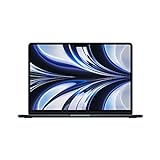
Weight: 2.75 lbs | Processor: Apple M2 | GPU: integrated | Memory: 8GB | Storage: 512GB PCIe SSD | Screen: 13.6-inch , 2560 x 1664 | Battery Life: 15-hours | OS: macOS
It is prevalent to see many shiny Apple logos in your classroom or college campus. Apple’s products are trendy among students. The MacBook Air is probably the most suitable choice because of its compact and easy-to-carry design.
This year Apple has made many improvements in the Air series. This latest model is packed with tons of the latest features, including a Liquid Retina display, robust processor, and better battery life.
The 4th Gen MacBook Air is now packed with an Apple M2 chip supported by up to 8-core CPU and 10-core GPU. It’s approximately 15x times faster than the Intel-based model, which is insane. This chip is so energy efficient that it can deliver up to 15 hours of backup on mixed usage, which is incredible. You can max out your MacBook Air up to 2TB SSD and 24GB memory per your requirements.
The Liquid Retina display is a treat for your eyes; whether we discuss color accuracy, brightness level, sharpness, or even contrast ratio, it ensures a top-notch experience. The Apple TouchID make your MacBook more secure; it allows you to unlock, open password-protected file, or use Apple Pay with just one touch.
The build quality is fantastic; there is no compromise here. Also, now MacBook Air features two Thunderbolt 4 ports for easy connectivity. The camera, mic, and speaker quality are also significantly enhanced, providing a rich viewing and listening experience.
MacBook Air is undoubtedly expensive, but it could be the best investment if you need the most reliable and portable machine with a strong performance.
PROS
- Liquid Retina display
- Incredible performance
- Highly responsive keyboard and touchpad
- Slimmest and most portable design
- Mind-blowing battery life
- Thunderbolt 4
- Superior camera and sound
CONS
- Expensive
- No touchscreen
9. Dell XPS 13 9380 (Best Windows Laptop for Economics Students)

Weight: 2.8 lbs | Processor: i7-1195G7 @5.0GHz | GPU: Intel Iris Xe | Memory: 16GB | Storage: 512GB PCIe SSD | Screen: 13.4-inch touch , 3840 x 2400 | Battery Life: 14-hours | OS: Windows 11 Home
Dell XPS series is extensive; it offers from budget to premium laptops. The Dell XPS 13 9310 is one of the most promising members of that family. It’s a favorable choice for students and professionals due to its sleek design, touch screen, solid performance, and longer battery life.
With the support of a quad-core Intel Core i7-1195G7 processor, 512GB NVMe SSD, and 16GB memory, Dell XPS 9380 can deliver a satisfying performance. It’s like a MacBook Air of Windows machine but with touchscreen support. You edit, design, play, work, or use it for entertainment; it could be your ultimate buddy. Keep in mind; the XPS 9310 isn’t offering a dedicated GPU; therefore, if you’re into heavy gaming or other graphics-intensive work, you should avoid this slim notebook.
It provides a 4K touch screen with anti-reflective, 90% DCI-P3 color gamut, and 500 nits of brightness. Whether you want to watch movies, edit graphics, or read, it ensures the paramount user experience.
Dell XPS 13 is made from aluminum with a three-sided skinny bezel; its design isn’t only premium and futuristic but also ensures top-notch durability. Surprisingly, this slim laptop can deliver 14 hours of battery life despite a 4K display and solid performance. It’s certified by the Intel Evo Platform.
This notebook has many exciting features, which justifies its price. For example, you can turn on your laptop in milliseconds by just opening the lid, no matter what power state you’re in. Also, with the fingerprint sensor, you can log in with just one touch.
If you have a decent budget and need a reliable and robust notebook for your economics study, the Dell XPS 9310 might be a great choice.
PROS
- Superb 4K touchscreen
- Terrific performance
- Stunning design
- Ultra-compact and handy
- Thunderbolt 4
- Lid and fingerprint sensors
- Premium quality keyboard and touchpad
- Enjoyable sound
CONS
- Higher price
- No dedicated GPU
10. Microsoft Surface Pro 9 (The most Portable Laptop for Economics Study)

Weight: 1.94 lbs | Processor: i5-1235U @4.4Ghz | GPU: Intel Iris Xe | Memory: 32GB | Storage: 1TB PCIe SSD | Screen: 13-inch touch , 2880 x 1920 | Battery Life: 15-hours | OS: Windows 11 Home
Microsoft Surface Pro 9 is a 2-in-1 laptop that can be genuinely used as a tablet because Its detachable design provides freedom. Surface Pro 9 is very expensive, mainly because the company sells other accessories separately, such as keyboard covers and stylus.
The Surface Pro 9 boasts a 13-inch PixelSense display with 2880 x 1920 pixels of resolution, 120Hz refresh rate, Dolby Vision, and 10-point multi-touch. It can deliver exquisite picture quality; it’s so versatile that it can blend with any usage style.
The best thing about this Surface Pro is it’s available in different configurations. As a student, you can choose the Intel Core i5 model with 8GB memory and 256GB SSD; that would be enough. However, if you spend more, you can also go with its 5G-supported or Core i7 model as per your preference.
The latest Microsoft Surface Pro 9 is backed with solid features, which include full HD cameras, Dolby Atmos speakers, studio microphones, 2x Thunderbolt 4, etc. The battery life is also improved compared to its previous mode; it can last up to 15 hours which is good.
The only problem with the Microsoft Surface Pro 9 is its cost, but if you can afford it, it is undoubtedly the best choice for students.
PROS
- Outstanding PixelSense Flow display
- Available with several configurations
- Prolonged battery life
- Detachable design
- Thunderbolt 4
- Most compact and portable
- Great cameras and sound quality
CONS
- Highly expensive
Best Computers for Economics Students in 2024
Most laptops listed in this article are affordable, and you can choose as per your preference, such as gaming, touch-enabled, or portable. As a student, especially if your budget is tight, choose a laptop that offers an Intel Core i5 processor, 8GB memory, 256GB storage, and around 8 hours of battery life. These specs are enough to handle daily chores, from assignments to light gaming.
If you can spend more, many options are available; I also listed some top-rated premium laptops that can fulfill all requirements. Hopefully, this article has been helpful to you; thanks for reading!











Which laptop should I buy for my economics study? Sometimes, I play games as well, such as Angry Birds and Asphalt.